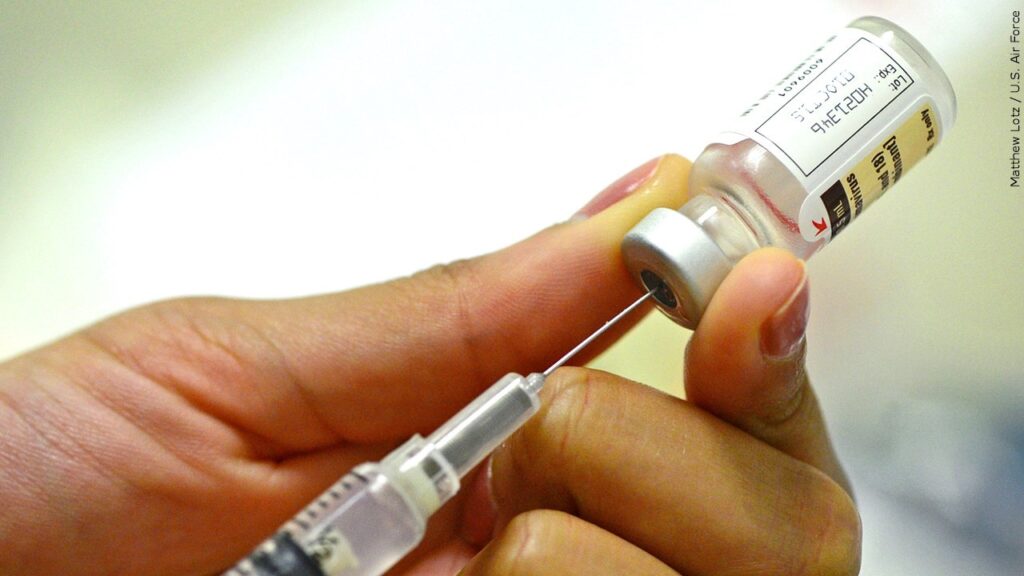Health experts share warnings during Infant Immunization Week
According to the Minnesota Department of Health, about one-third of Minnesotans under the age of 2 are not up to date on recommended vaccines. The agency is warning of a drop in numbers during Infant Vaccination Week.
“We know that the more people who are vaccinated, the less likely we are to see the spread of vaccine-preventable diseases,” said Jessica Hancock Allen, director of the Minnesota Department of Health's Division of Infectious Diseases. “
The number of infants currently receiving recommended vaccines has decreased from about 69% in 2019 to 63% in 2023, according to MDH.
“During the COVID-19 pandemic, many people delayed seeking primary care for a variety of reasons,” Hancock-Allen said. “There [also] There are still concerns about vaccines and vaccine hesitancy, and the fact is that parents of children, especially young children, are very busy. ”
The decline occurs as serious diseases become more prevalent, leaving infants vulnerable.
Minnetonka High School on Thursday alerted families that there are multiple vaccinated students in the high school area who have contracted pertussis, also known as whooping cough. In a letter to families, the district said, “While routine vaccination does help prevent whooping cough, it is not guaranteed, but it does reduce the severity and duration of illness compared to unvaccinated individuals.” It's possible,” he wrote.
Infants usually receive their first whooping cough vaccine at 2 months of age. MDH says the disease can be serious in infants.
“Our goal is to get as many children vaccinated as possible,” Jessica Hancock Allen said.
The health department is also concerned about measles. In Minnesota, there have been three confirmed cases of the virus in unvaccinated children under 6 this year.
There have been at least 125 cases nationwide this year, according to CDC data. Of those cases, 57 involved children under the age of five, and 65% of them were hospitalized.
“It can be incredibly devastating for families,” said Dr. Gigi Chawla, chief of general pediatrics at Children's Hospital of Minnesota. “Children are often hospitalized with dehydration and respiratory illnesses, often end up in the ICU, and some even die.”
She explained that chronic diseases can also occur.
“After many years, neurological symptoms can develop that can lead to seizures and death,” she says.
Chawla explained that the measles-mumps-rubella vaccine is the most effective at preventing infection, with two doses being about 99% effective. Children at least 1 year old are eligible, but infants as young as 6 months old can also be vaccinated if they are planning a trip abroad.
The state data covers kindergarteners and shows that only about 88% of children that age were fully vaccinated with the measles vaccine during the 2022-2023 school year, which is needed for herd immunity against the disease. This is significantly lower than 95%.
“We are at a point where MMR vaccination coverage in the region is low enough to not provide the protection we would expect for children under one year of age and those who cannot be vaccinated,” he said. Chawla.
Three measles cases in Minnesota were treated at Children's Minnesota.
“Measles spreads so quickly that it seeks out vulnerable people,” said Lyn Barta, clinical immunization consultant at MDH. “The virus that causes measles is so small that when someone has measles and sneezes or coughs or even talks or cries, those tiny virus particles are released into the air. Some heavy bacteria Unlike measles bacteria and viruses, they tend to remain airborne for long periods of time.
Dr. Bata recommends that families talk to their doctors about early vaccinations when traveling abroad with infants aged 6 to 11 months.
“We know that [vaccination] Interest rates are lower, not just in Minnesota, but across the country and the world,” Bata said.
Children's Minnesota offers same-day and walk-in appointments at nine primary care clinics. Hennepin County also offers free walk-in vaccination clinics for infants through age 18.


